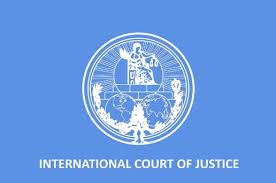State Succession under International Law
State Succession under International Law
1. Meaning of State Succession
State Succession refers to the legal consequences that follow when one state replaces another in the responsibility for the international relations of a territory. In simple terms, it means when the sovereignty over a territory passes from one state to another.
2. Situations Giving Rise to State Succession
Decolonization: Former colonies gaining independence.
Dissolution: When a state breaks up into two or more new states (e.g., USSR, Yugoslavia).
Unification: When two or more states merge into one (e.g., Germany in 1990).
Cession: Transfer of territory from one state to another (e.g., Alaska from Russia to the USA).
3. Legal Issues in State Succession
Succession to treaties: Whether the new state is bound by treaties of the predecessor state.
Succession to debts: Responsibility for debts incurred by the predecessor.
Succession to property and assets: Transfer of state property, embassies, etc.
Succession to nationality: Citizenship laws in the new state.
Succession to rights and obligations: Including membership in international organizations.
4. Types of State Succession
| Type | Explanation | Example |
|---|---|---|
| Universal Succession | The successor state inherits all rights and obligations of the predecessor | Unification of East and West Germany |
| Partial Succession | Successor state inherits only some rights and obligations | Dissolution of the USSR |
5. Principles Governing State Succession
Clean Slate Doctrine: A newly independent state starts with a "clean slate" and is not bound by predecessor treaties.
Continuity Principle: Some treaties and obligations continue despite the succession.
Equity and Good Faith: Successor states must act fairly regarding debts and treaties.
Treaty Law: Vienna Convention on Succession of States in respect of Treaties, 1978 (though not yet widely ratified) governs treaty succession.
6. Key International Instruments
Vienna Convention on Succession of States in respect of Treaties, 1978
Vienna Convention on Succession of States in respect of State Property, Archives and Debts, 1983
7. Important Case Law / Examples
Succession of the USSR: Russia claimed to be the sole successor of the USSR, inheriting its UN Security Council seat and treaty obligations.
Dissolution of Yugoslavia: Created multiple successor states with debates over treaty and debt responsibilities.
Decolonization of Africa and Asia: Most newly independent states followed the clean slate doctrine regarding treaties.
8. Summary
| Aspect | State Succession Rule |
|---|---|
| Treaties | Depends on type; new states may or may not be bound |
| Debts | Often negotiated; no automatic responsibility |
| Property and Assets | Successor inherits state property within territory |
| International Organization Membership | Usually requires new application |












comments